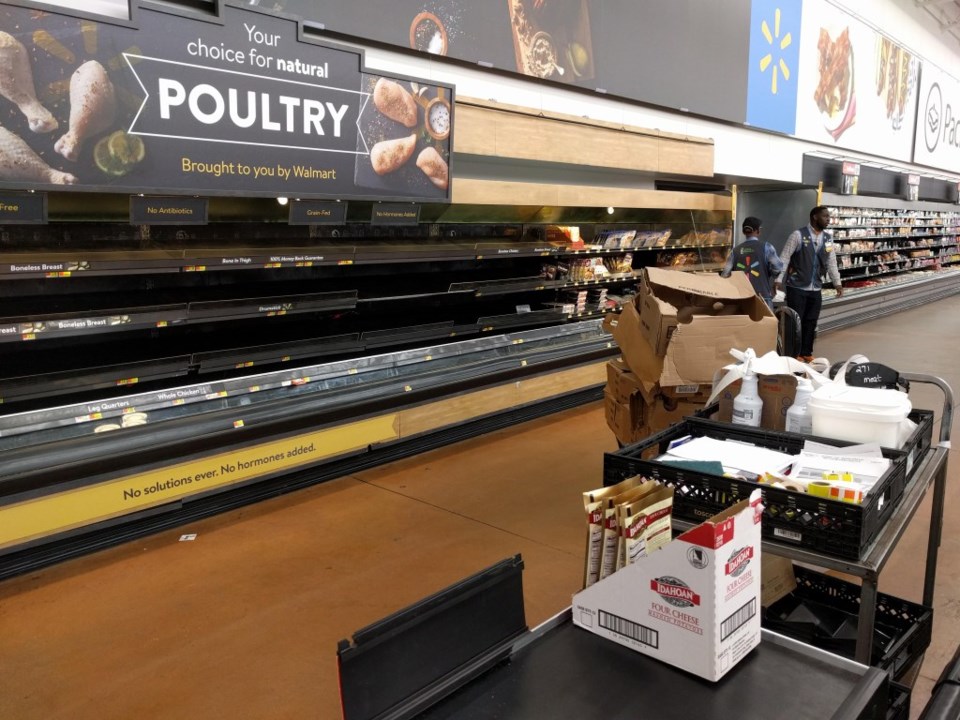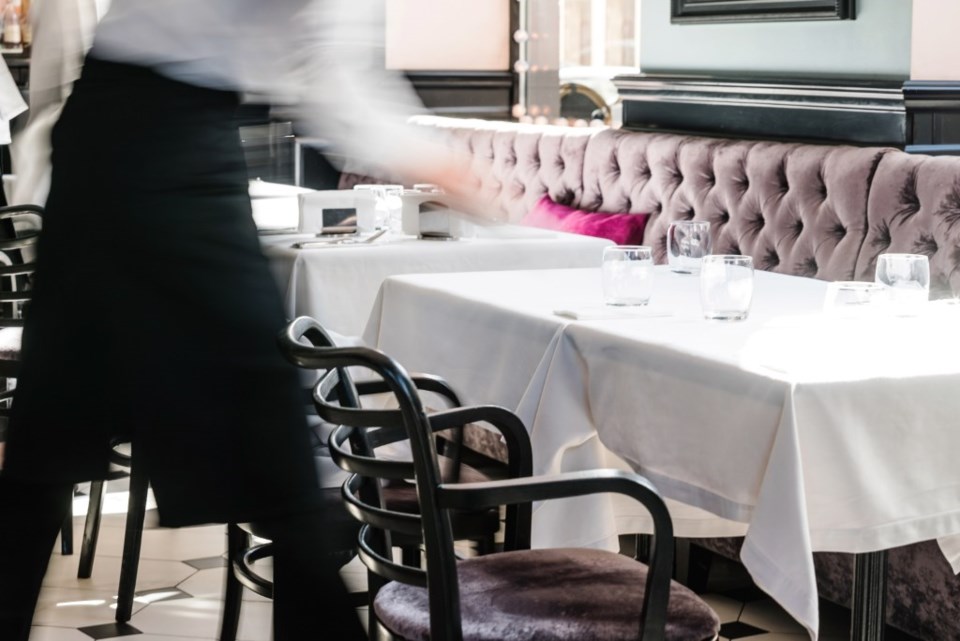Being a restaurant in 2020.
While the phrase may become some kind of cliche descriptor of misfortune in the next few years, the phrase carries significant weight now, just over a year from the time the world stopped.
March 2020: when restaurants throughout the world had to suddenly think on their feet to survive, and transform what most would consider deep misfortune into a new way of life.
Emily Williams Knight, president and CEO of the Texas Restaurant Association, remembers the day she received the call from Governor Greg Abbott’s office last year, in the wake of COVID-19.
“Of the 50,000 restaurants in Texas, only about 34% were able to generate revenue the following day through delivery, take out, or drive thru,” Emily recalls. “Overnight, everyone else had no ability to make money.”
There was no playbook for what the TRA, the governing leaders, or the restaurant operators across the state would have to face.
"We had to work together to be the source of truth for the restaurant operators," Emily says.
This meant round-the-clock deciphering of federal programs that were constantly rolling out; translating upwards of 700 pages of bills to see what the impact would be on the restaurant industry; collaborating with the Workforce Commission to make sure the unemployment tax rate didn't go up; and fighting for restaurants to do things like sell groceries, offer alcohol to-go, or extend their patios in cities for curbside service.
Now, many restaurants that closed are starting to reopen. But they're not out of the woods just yet. With the shortages in supplies and staff that restaurants (and bewildered customers) are now facing, there's still a long way to go.
At the time of this interview, Emily was in Santa Fe for the Council of State Restaurant Associations/National Restaurant Association's 2021 conference. A team from each state came to represent their states' restaurants, share industry perspectives, and work on efforts like the "sorely underfunded" Restaurant Relief Fund.
"There are three significant concerns for restaurants that have become very clear as we face the third wave of this pandemic: labor shortage, supply chain and pricing, and the Delta variant," Emily said on the phone from the conference, where she represented Texas.
"We're concerned about these new pressures on our businesses. How many are going to close the doors because they just can't make the final turn?"
Restaurants like Fish City Grill are entering that turn with speed as they face the shortages created by the pandemic's next wave.

The difference a ketchup bottle makes
So why are your favorite restaurants out of everything?
During the pandemic, demand for certain things (from the comfort of fried chicken, to sourdough starters) skyrocketed while production was down. COVID-19 also shut down much of the shipping supply chain in surprising ways.
"There are no pallets to move things," Emily says. "So how do you move bulk goods from our farmers and producers onto trucks? That's something that the consumer doesn't see. Who would have thought shipping pallets would be such an issue?"
So the supply and shipping issues, thanks to the time-warp of the pandemic, are creating a slowdown on getting restaurants the things they need in a reliable manner.
Restaurants like Fish City Grill realized quickly that the most unlikely items can cause a chain reaction. Something like a ketchup bottle has a much bigger impact than you'd think.
"Anything that comes in a bottle has been a challenge," says Gje Greene-Wallace, director of marketing at Fish City Grill. "Heinz is moving all these restaurants from plastic ketchup bottles to glass, which is great, but there's a supply shortage of glass bottles right now. That also affects the beverage side of the business: tequila bottles, wine bottles, beer bottles. So something like a glass ketchup bottle also impacts every other item that comes in a glass container."
For bewildered customers who just want their favorite beverage, servers have to break the news that there's no tequila for a margarita. Or a family with children may realize there aren't any crayons for the kids' menus.
Meanwhile, Emily observes the lesson learned here: if we didn't realize that we're in a global market before, it's crystal-clear now.
"All of that stress of the economy reopening with less product than there is need... it's not just Texas. It's not just the U.S. It's global," Emily says. "We have all these shortage issues because production stopped for a very long time. Production’s moving again, but it's slow; and there are just not enough people."

Short on staff
Not enough people.
Employment in leisure and hospitality across Texas was reported to have dropped by 38% between March 2020 and April 2020.
While Fish City Grill is relatively lucky to have many team members return to work, many more team members have decided not to return. For good.
"A lot of them found that their side hustle became their primary hustle," Gje says. "They turned their passion projects into a business. The same thing with going back to school. We had a lot of team members who finished a degree, got a certification, something they could do online during COVID, which really helped them to achieve some of their goals."
Many people speculate that extended unemployment benefits are still contributing to the lack of willing potential employees. But Gje says that, while Fish City's staff saw that effect in the beginning, they don't see unemployment benefits factoring in nearly as heavily now.
Most of Fish City's employees who left did so to pursue their passions, go back to school, or take different jobs after a year of exhaustion and reflection. However, for other staff who departed without looking back, there's something sadder beneath the surface.
"We have a lot of very strong-hearted people who had a really hard year. Some of them just want a change of pace, and I don't blame them after the last 18 months," Gje says. "I spoke to one team member who left to drive a forklift. He took a 25% pay cut to drive a forklift for Amazon. He just needed a break. Hospitality, in a year like this, is not an easy job."
Fish City Grill used to spend much smaller sums of money on finding new team members. Now, they're throwing out $500 and $1,000 incentives to try to get people to join their team.
"We can look for all the political reasons why people don't want to come back to our industry, but I believe that people have just had time to reflect and make different decisions," Emily says. "Our workforce will return. It's going to come from different areas, and restaurants are going to have to create an environment -- like they do at Fish City Grill -- where people feel part of a community."

How can you help?
Speaking of community: how do customers do their part as their favorite restaurants do their best with what they've got?
- When a restaurant is out of your favorite item, try something new! "If your favorite item isn't on the menu, it's not because somebody didn't order properly," says Gje. "If you can't get that drink, it's not necessarily the server's fault or the manager's fault. They're dealing with it every day, hearing about the same 20 supplies that still haven't arrived."
- 10 tables empty and still an hour-long wait? Remember that staff is short! Wait it out or make reservations.
- Show kindness by treating servers well, and tipping well too! Gje implores customers to consider what they've been through in the last year and a half. "We've heard customers say 'the manager's an idiot, why isn't there more strip steak?'" Gje says. "Well, that's because it's three times the cost and you can't get it. The circumstances we're given affect everybody. From the host at the front door, to the dishwasher, to the cook in the kitchen."
- Stay committed to your favorite restaurant! "We hear media applauding, saying that restaurants are back. But you need to understand that most of them are actually not 100 percent 'back,'" Emily says. "They need your grace and partnership to help them survive."
If Collin County restaurants like Fish City Grill have proven anything this year, it's that "being a restaurant in 2020" doesn't just mean meeting misfortune. Instead, it means having the grit and ingenuity to persevere, adapt, and face what's next. And customers are a crucial part of helping those restaurants make the final turn through the pandemic.



